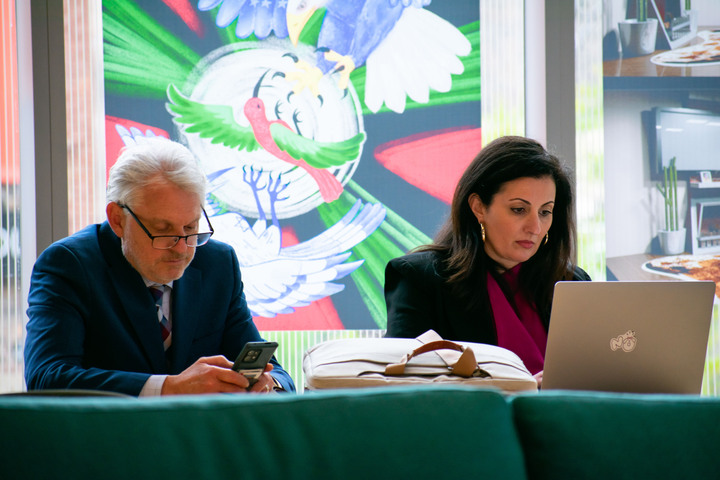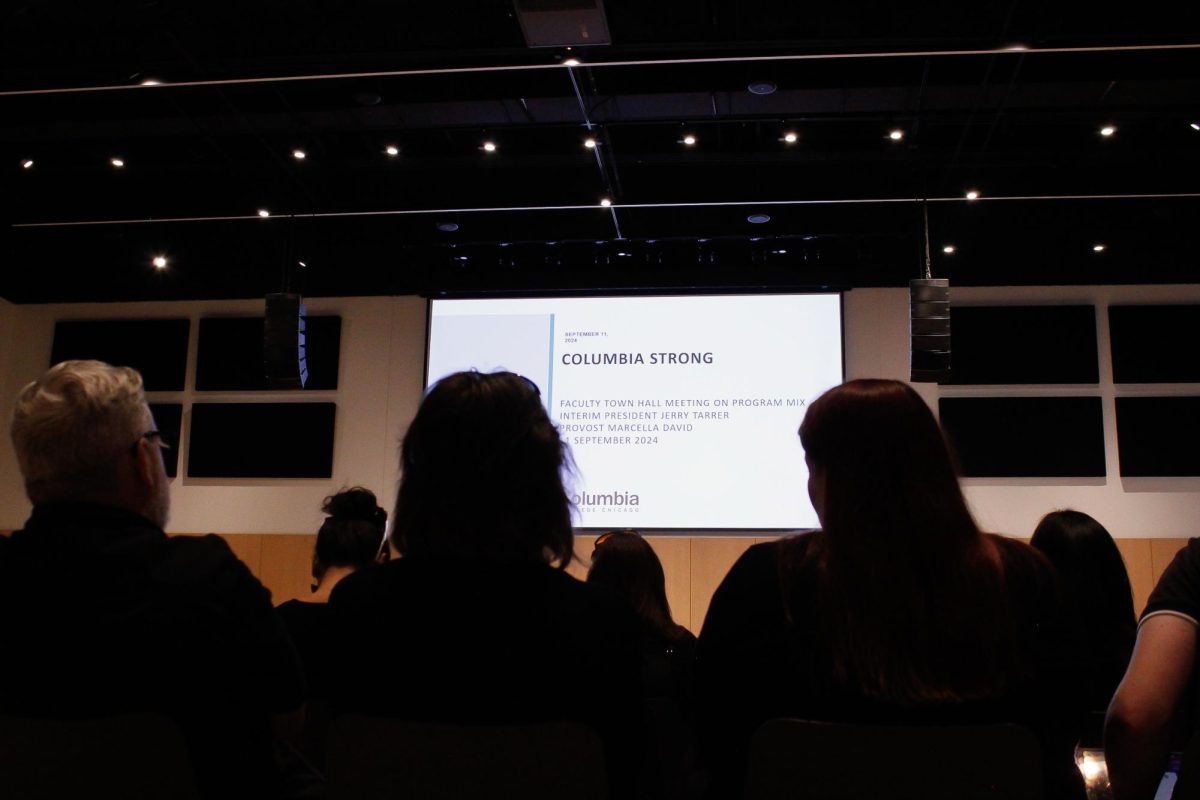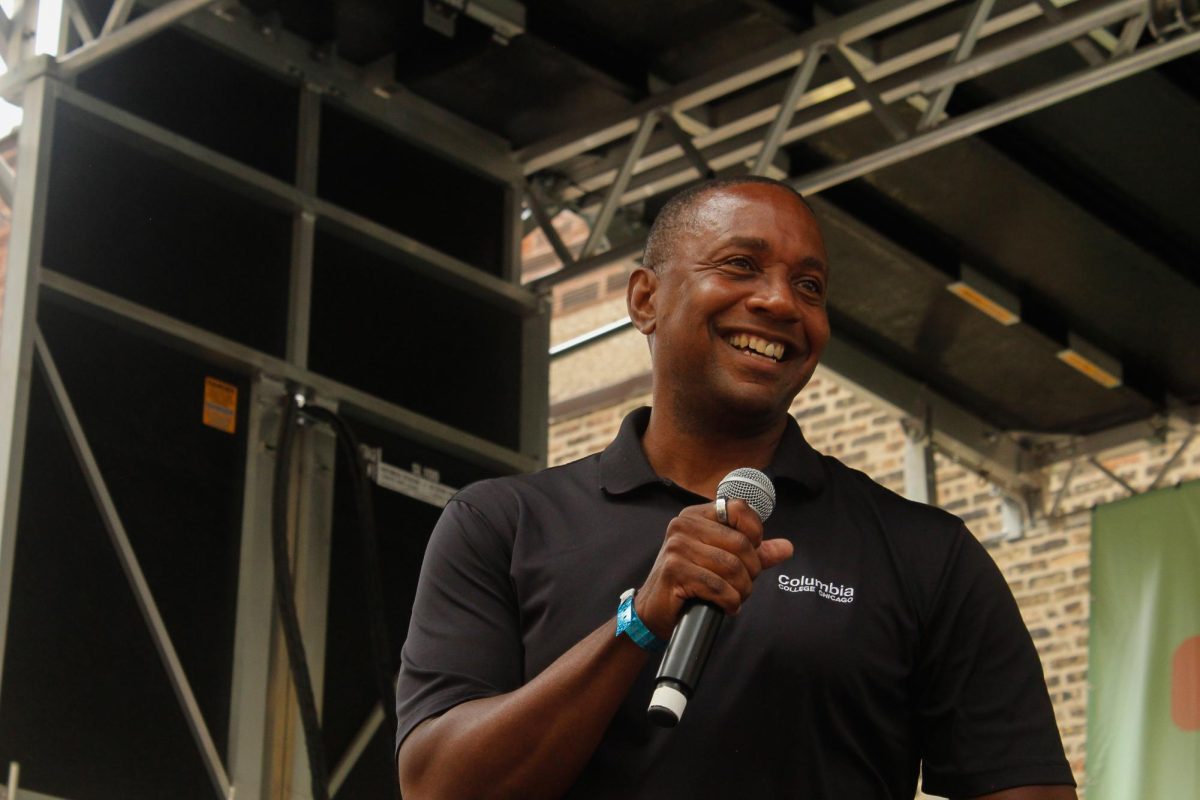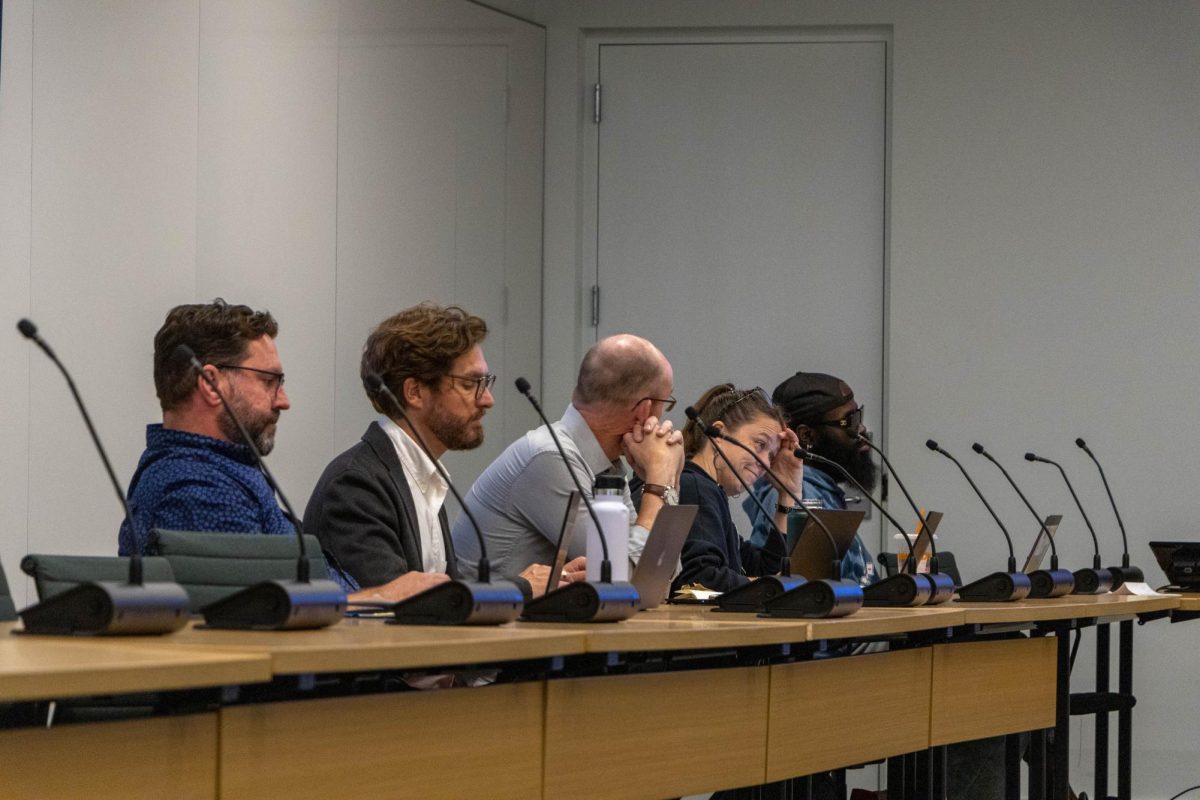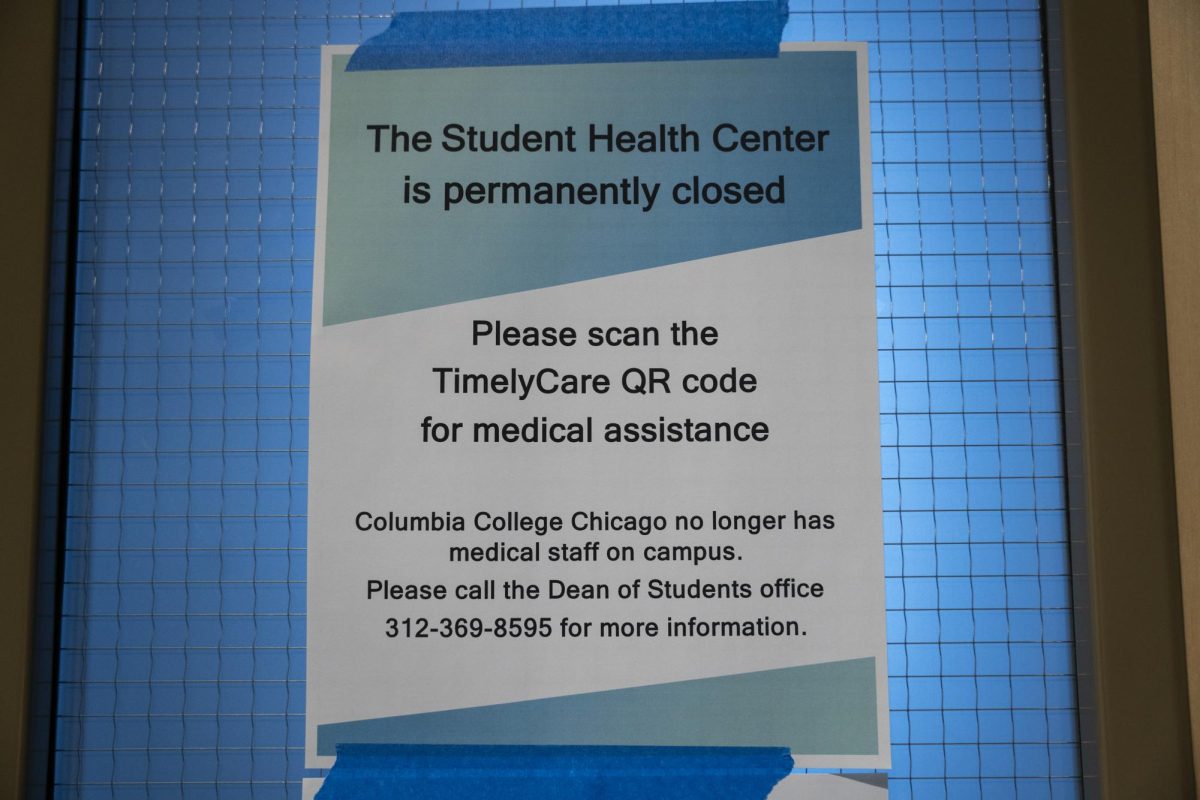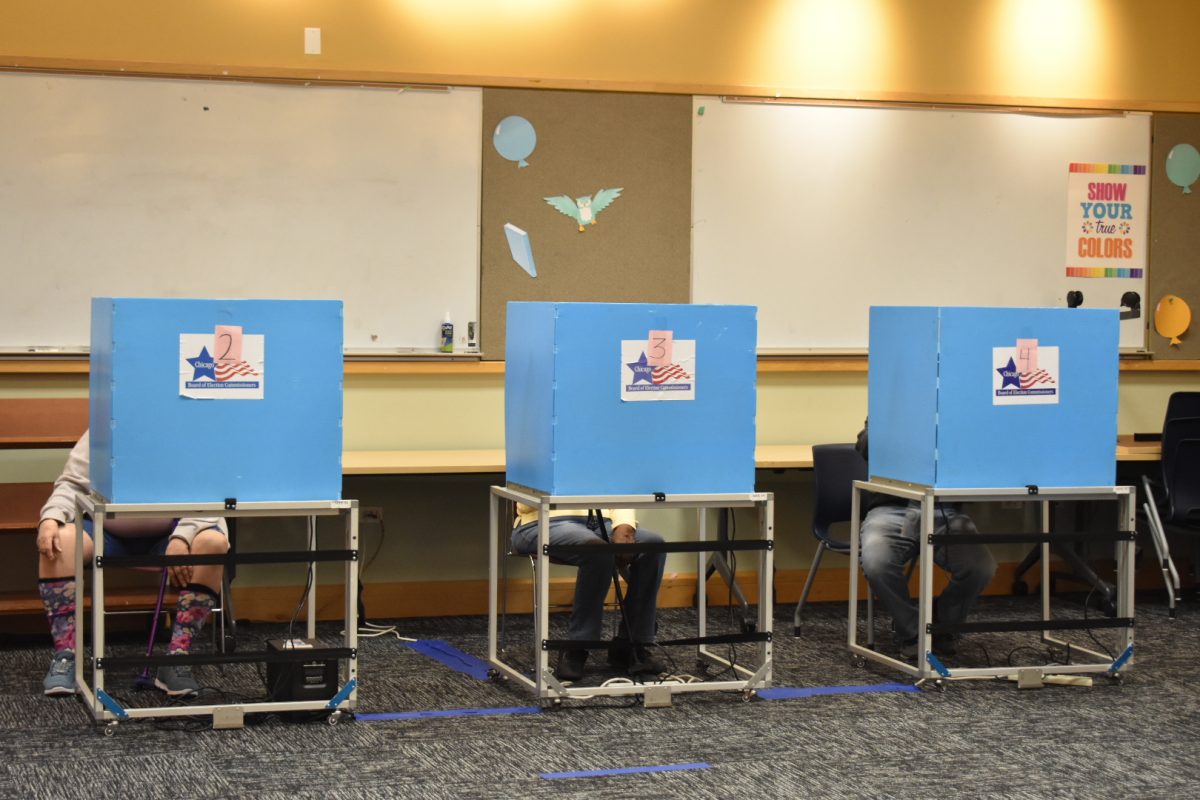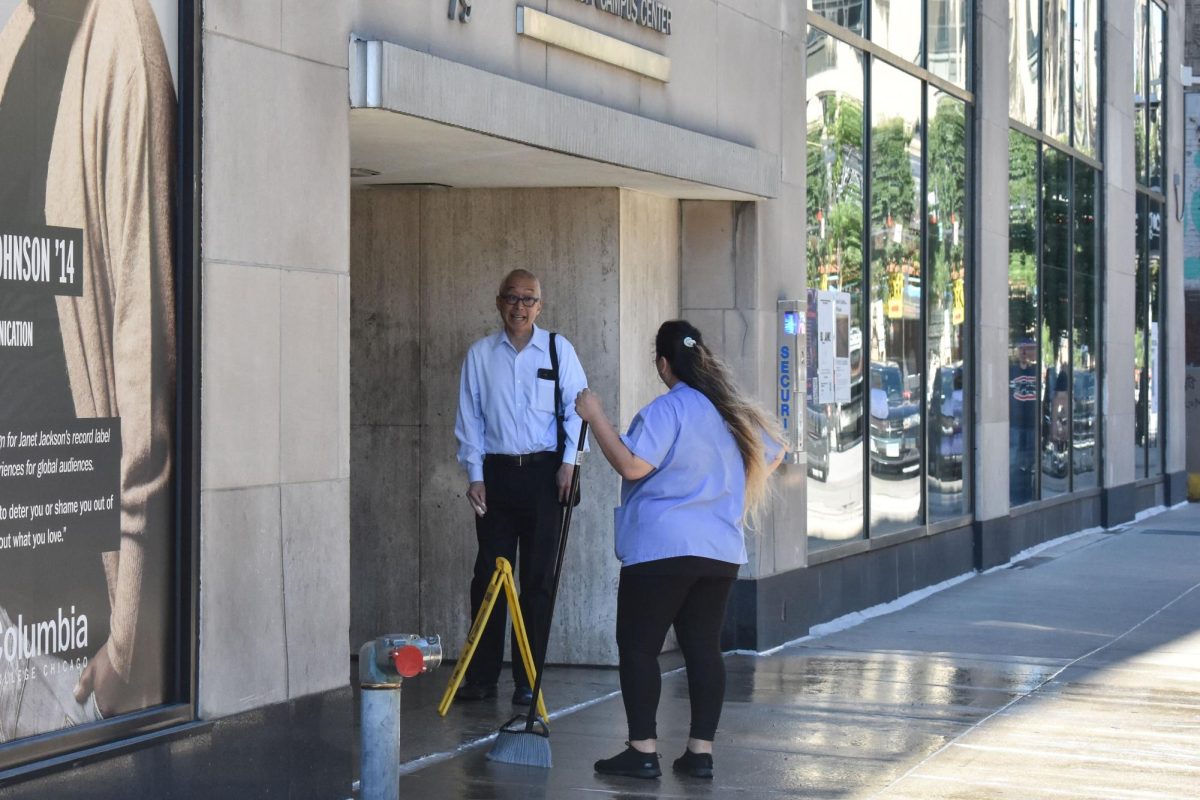Columbia’s Board of Trustees delayed a vote on President and CEO Kwang-Wu Kim’s recommendations to make sweeping structural and financial changes to the college.
The board, which met Thursday, May 9 for four hours, was expected to reduce the core requirements, increase faculty workload and make $18 million in cuts for the next fiscal year.
Kim recommended that Columbia had met the criteria for a condition known as “adverse circumstances,” which allows the college to cut academic programs and lay off faculty with tenured appointments. But in an email to the campus community late Thursday night, the college said the board has not taken action after all and “will continue to deliberate on the recommendation by the president that the board declare adverse circumstances.”
Earlier in the day, the college mistakenly sent an email just as the board started to meet at the Student Center, saying members had already voted to accept Kim’s recommendations.
The college sent another email less than an hour later confirming a draft message had been prepared and “erroneously sent.”
Then at just about 8 p.m., the college sent a third email and said the vote had been delayed.
In the preliminary email, the college said it would reduce its fiscal year 2025 operating budget by $18 million compared to the current budget year.
Some of the other changes outlined in the first email:
- Reducing the general education requirements from 42 to 30 credit hours, though students will still have to take courses in math, science, writing/communication, history and cultural studies. The new requirements will apply to incoming first-years in Fall 2024 and to students who already completed 30 core credits in the specified categories.
- Increasing the faculty teaching load from 18 to 21 credits per academic year, which means faculty with tenure appointments will teach three to four courses per semester. Full-time faculty who are assistant, associate and professors of instruction already teach eight courses per academic year.
- The college will move from four schools made of 15 departments to eight schools that “collectively will encompass” the 15 former departments.
- The college will review its existing programs, possibly eliminating some but also adding new ones. That process is expected to start this summer with the assistance of a consulting firm, as the Chronicle previously reported.
According to that preliminary email, the college could also make cuts in administrative and instructional expenses, which would take place by June 1. Kim announced the possibility of layoffs of full-time faculty with tenured appointments on Feb. 9.
The Board of Trustees is responsible for the college’s academic focus and financial condition, as outlined in the college’s Statement of Policy.
That same policy jump-started the process in February when the board directed Kim to prepare a report to assess how bad the college’s financial situation was.
In his initial draft advisory report released on Feb. 28, Kim found that the college had met the conditions for “adverse circumstances,” which allows the board to lay off faculty and eliminate academic programs. Faculty were disappointed to find out on May 2 that they would not see a final report prior to the board’s vote.
At the time of the draft, Kim also recommended that the college reduce its core general education requirements, which he said would result in the possible elimination of 11 to 13 full-time faculty positions across the English and Creative Writing, Humanities, History & Social Science and the Science and Mathematics departments. Additionally, Kim proposed restructuring the college’s schools, eliminating all but two dean positions and all chair positions. Instead, leaders of academic units would be “directors.”
In its response to the draft, the Faculty Senate pushed back, particularly on the quick timeline and objected to the lack of justification behind the budget cuts outlined in the report.
Faculty Senate President Madhurima Chakraborty said that the increased faculty workload was “expected” but conversations need to be happening through the Statement of Policy.
“It’s increased workload regardless, but people have been worried for their jobs,” said Chakraborty, who spoke to the trustees on Thursday night.
Chakraborty said that though she is sure the premature email sent out was an honest mistake, it made her feel as though “a lot of decisions have been made already.”
The board last agreed to adverse circumstances in 2018 when it recommended that the college eliminate its Education and Creative Arts Therapies programs.
Ava Chatterjee, associate professor in the Humanities, History and Social Sciences Department who was teaching at Columbia the last time programs were cut, said she’s feeling “deja vu” and, prior to the board meeting, was not hopeful about the outcome.
“I am always suspicious about decisions for not sharing information,” Chatterjee said. “People are much more likely to empathize about challenges when they are given the full picture.”
Kim announced in an email sent to Columbia students and faculty on Feb. 14, that he will resign by July 1. Senior Vice President and Current Chief Financial Officer Jerry Tarrer will become interim president and CEO on July 2 while the Board of Trustees conducts a presidential search.
In an email sent on May 8, chair of the Board of Trustees John M. Holmes announced the presidential advisory search panel and said the panel expects to extend an offer to the selected president in January 2025, to start next summer.
Manifest, which starts on Friday, May 10, kicking off graduation weekend, will be Kim’s final one after 11 years at the college.
Staff Union President Craig Sigele said that the USofCC is “alarmed by the administration and board’s actions” and that the announcement of a decision just before Manifest and Commencement “clouds what should be a joyful weekend with worry.”
“The president’s advisory report suggests changes that threaten staff livelihoods” Sigele said. “Without evidence of a $38 million deficit, we challenge Dr. Kim’s “Adverse Circumstance” assertion and believe that more time and care should have been taken before proposing these drastic measures.”
Copy Edited by Patience Hurston


